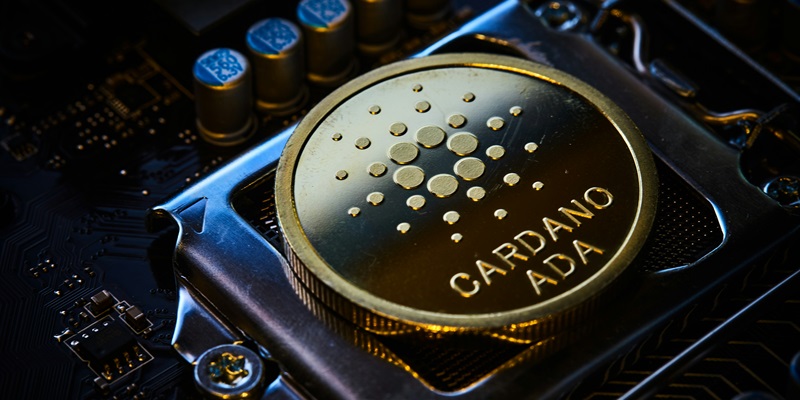The Chang Hard Fork represents a monumental leap in the Cardano ecosystem, a significant stride toward establishing a genuinely decentralized network. Officially launched with the release of Cardano node 9.1.0 on July 25, this upgrade traces its roots back to Charles Hoskinson, the founder of Cardano. Different from its predecessor, node v9.0.0, which treated the Conway genesis file as an option, node 9.1.0 mandates its use for startup. This necessity underscores the critical role node 9.1.0 plays in facilitating the Chang Hard Fork—a pivotal phase in the network’s evolution.
Enhancing Stake Pool Operations and Governance
Positive Impact on Stake Pool Operators (SPOs)
One of the critical components of the Chang Hard Fork is its significant positive impact on the operations of Stake Pool Operators (SPOs). The update revolutionizes the software SPOs use for validation, enhancing the efficiency and reliability of the network. By updating these systems, the hard fork helps pave the way for the Age of Voltaire, an era that promises to bring the most advanced governance features yet to be seen in blockchain technology. This includes annual budgets, a treasury, and an emphasis on harnessing community wisdom for continuous improvements and future development initiatives.
Delayed from its initial schedule in June to the final rollout in July, the upgrade ensures comprehensive preparedness and validation from all stakeholders involved. This delay underpins the commitment to thoroughness and quality, hallmarks of the Cardano ecosystem. By ensuring all systems were greenlit and ready, the delay meant a smoother transition to the new, improved blockchain governance system. The inclusion of such robust governance mechanisms signifies a move away from IOHK’s control to a fully community-governed blockchain, fortifying the network’s decentralization.
Shift to Full Community Governance
The transition from IOHK’s hegemony over the blockchain operations to a fully community-controlled governance model marks a revolutionary shift within Cardano. This advanced governance model comprises delegate representatives (DReps), SPOs, and a constitutional committee designed to provide the necessary checks and balances. Such a diverse framework fosters inclusivity and diversity, ensuring all voices within the Cardano community are heard and valued. It also marks a critical step toward establishing a truly decentralized ecosystem, moving towards a sophisticated governance framework touted for its unparalleled features.
This new model emphasizes inclusivity and diversity, key tenets for any decentralized system. Delegate representatives (DReps), SPOs, and a constitutional committee form an integral part of this governance structure, ensuring a balance of power and transparency. This shift underscores the emphasis on community wisdom in guiding future developments and innovations within the Cardano ecosystem. The carefully curated checks and balances mechanisms reflect the calibration and dedication that went into planning this upgrade, setting Cardano apart as a pioneer in the realm of blockchain governance.
Market Reactions and Future Implications
ADA Token Appreciation
Amid these technical advancements, Cardano’s native ADA token has seen a tangible uplift, appreciating by 4.85%. Currently trading at $0.4133, this surge in value highlights increased investor confidence and optimism surrounding the network’s future developments. This upward trend not only underscores the market’s positive reception of the Chang Hard Fork but also strengthens Cardano’s position in the competitive blockchain landscape. With the community-driven governance model now in place, ADA’s value could see further gains as trust and engagement within the ecosystem grow.
Beyond Cardano, the broader cryptocurrency market has also shown signs of dynamism, with several altcoins poised for substantial growth. Recent developments in crypto ETFs further contribute to the changing landscape, reflecting increased institutional interest and participation in the digital asset space. These trends provide a backdrop against which Cardano’s upgrades and innovations can be evaluated, underscoring the interconnected nature of the blockchain ecosystem. The burgeoning interest in crypto ETFs, coupled with the success of the Chang Hard Fork, suggests a bright future for cryptocurrencies as a whole.
Broader Market Trends
The Chang Hard Fork marks a significant advancement in the Cardano ecosystem, representing a crucial step toward creating a truly decentralized network. Officially initiated on July 25 with the release of Cardano node 9.1.0, this upgrade can be traced back to Charles Hoskinson, the founder of Cardano. Unlike the earlier version, node v9.0.0, which treated the Conway genesis file as an optional feature, node 9.1.0 requires its usage upon startup. This requirement highlights the vital role that node 9.1.0 plays in enabling the Chang Hard Fork, which is a critical phase in the network’s ongoing evolution. The Chang Hard Fork introduces key changes aimed at enhancing the network’s scalability, security, and overall efficiency. This latest upgrade is part of Cardano’s long-term strategy to continuously improve and adapt, ensuring that it remains at the forefront of blockchain technology. With these advancements, Cardano further solidifies its position as a leader in the pursuit of a decentralized future, bringing both innovation and reliability to its users.

